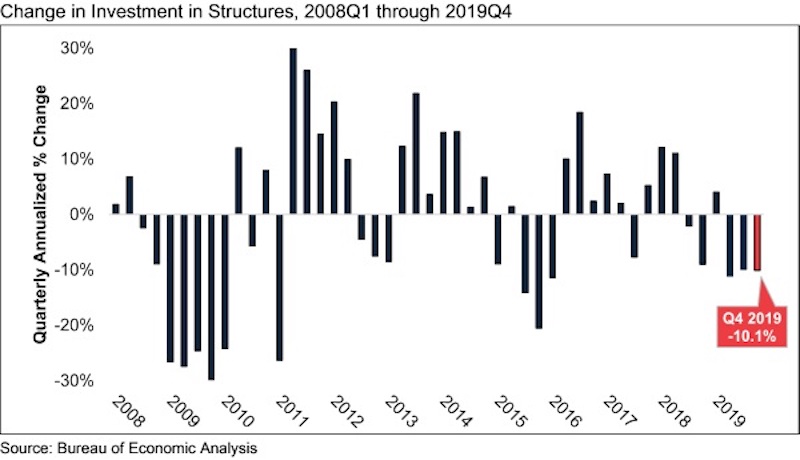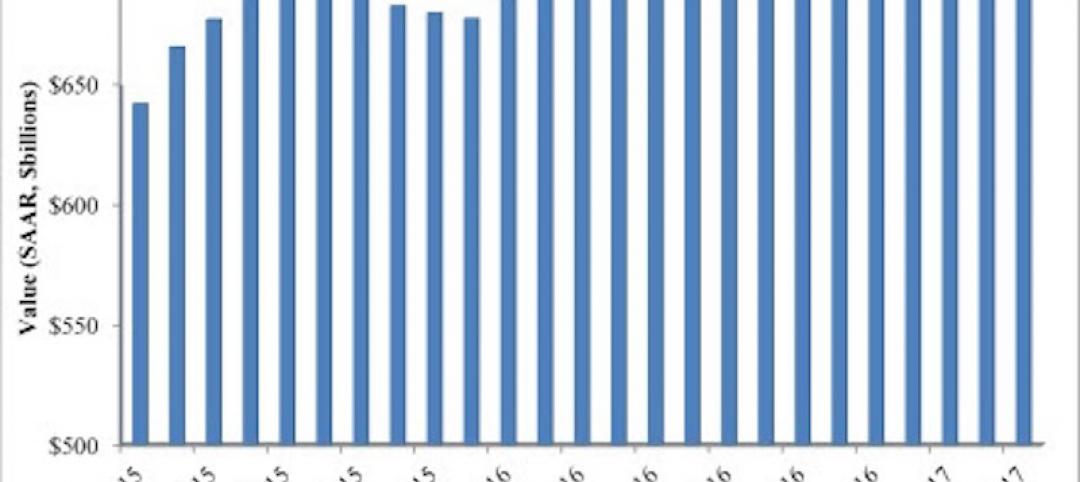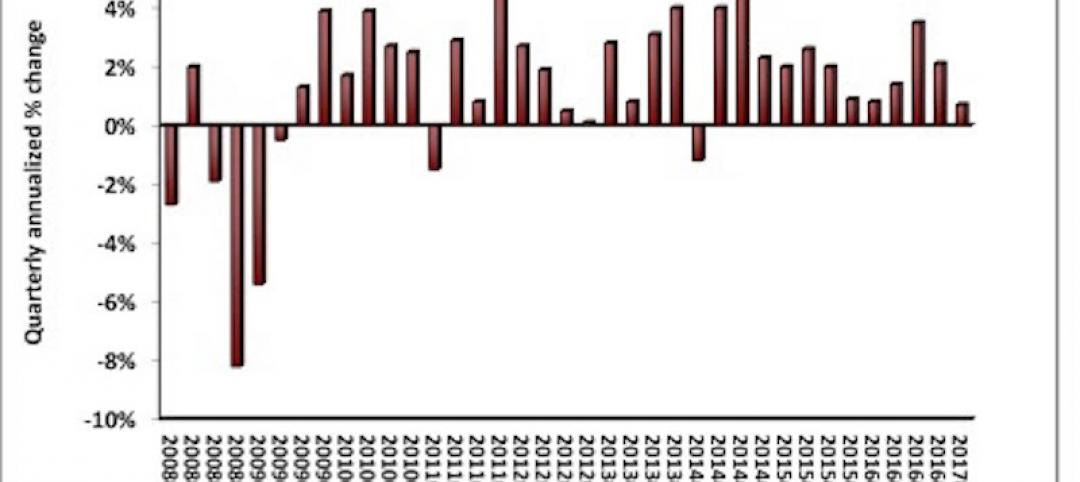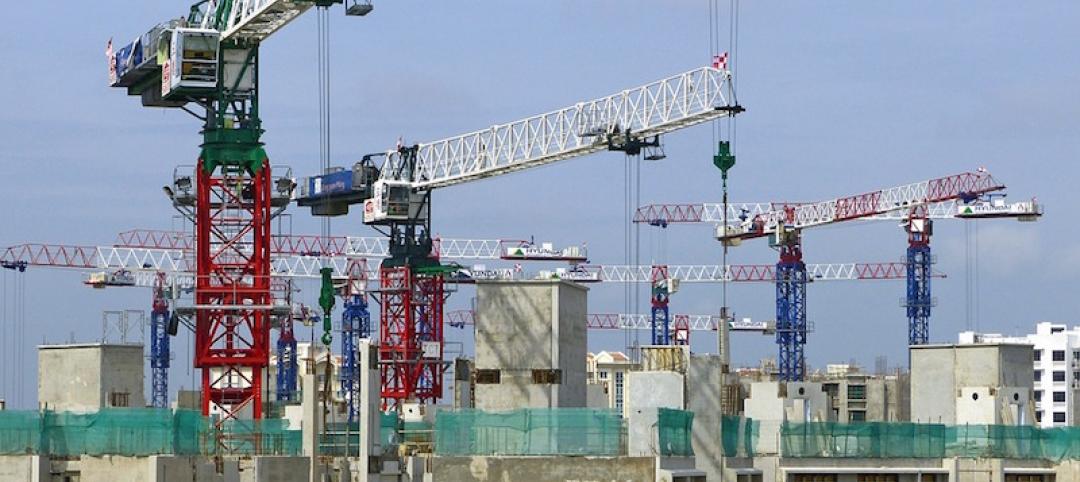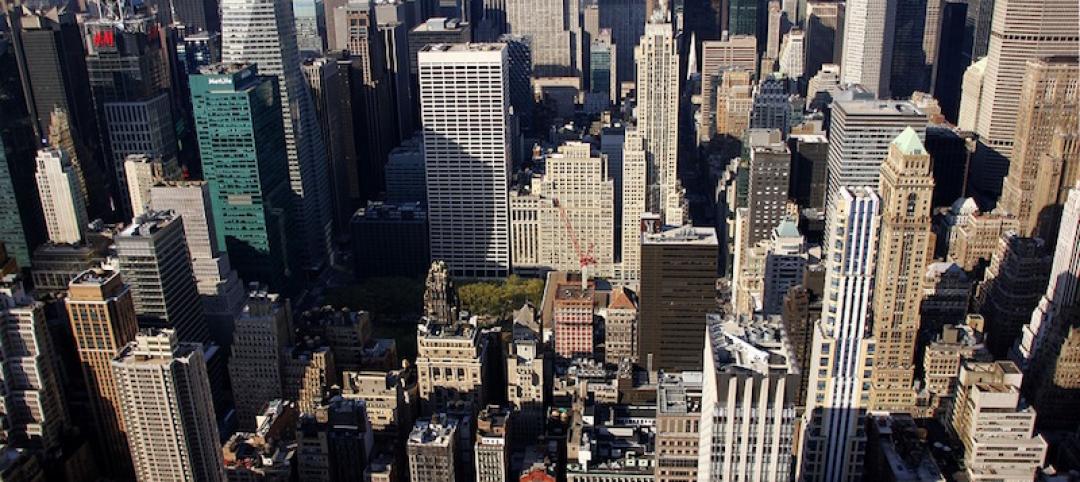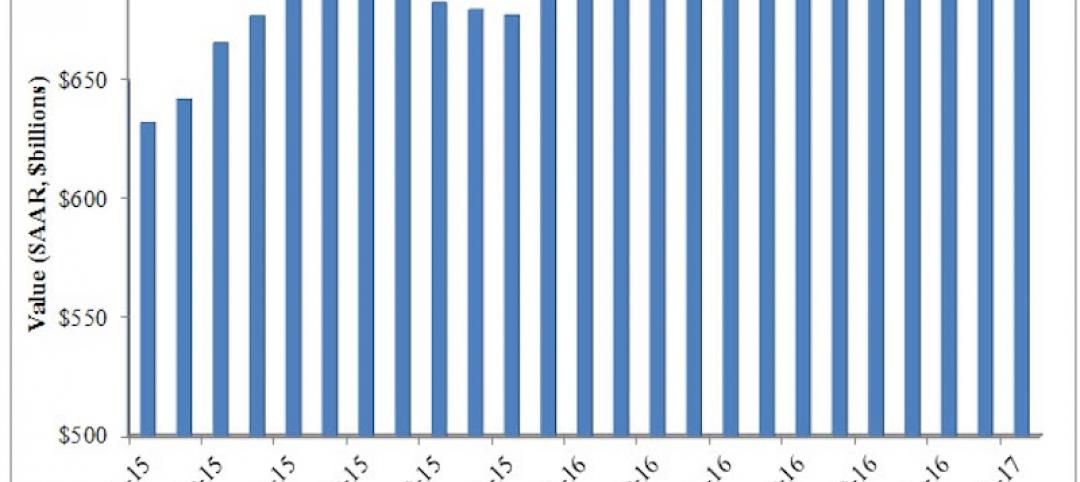The U.S. economy expanded at an annualized rate of 2.1% in the fourth quarter of 2019, despite investment in structures declining at an annualized rate of 10.1%, according to an Associated Builders and Contractors analysis of data released today by the U.S. Bureau of Economic Analysis. Investment in structures contracted for three consecutive quarters and declined 4.4% during 2019.
In 2019, real GDP expanded by 2.3%, which was slower than the 2.9% rate of growth observed in 2018. Investment in structures contracted 4.4% in 2019 after expanding by 4.1% in 2018.
“Last year will be remembered as decent but unspectacular for the U.S. economy,” said ABC Chief Economist Anirban Basu. “Strong consumer spending, historically low unemployment, surging asset prices and healthy backlog levels, according to ABC’s Construction Backlog Indicator, were offset by soft business investment, flattening levels of nonresidential construction and soaring national debt. In addition, key segments of the economy, including manufacturing and agriculture, were particularly weak.
“But 2019 tells us little about 2020 dynamics,” said Basu. “Coming into last year, many expected interest rates and the general cost of capital to rise. Instead, interest rates dipped, creating an improved environment for purchasers of construction services. Last year was also shrouded by fears of worsening trade wars, but with the ratification of the USMCA and the attainment of a first phase trade deal with China, the level of uncertainty has abated. Through the first month of 2020, this has translated into rising stock prices, which should induce greater business investment.
“This year’s presidential election may cause some purchasers of construction services to adopt a wait-and-see attitude,” said Basu. “Contractors are currently upbeat about their prospects over the next two quarters, according to ABC’s Construction Confidence Index. However, given contracting levels of investment in structures, it is unclear if that will persist through the end of 2020.”
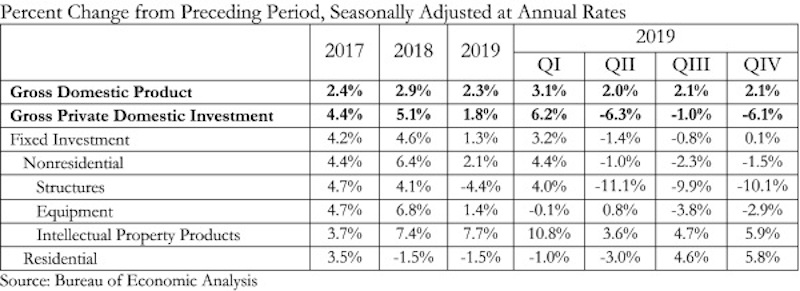
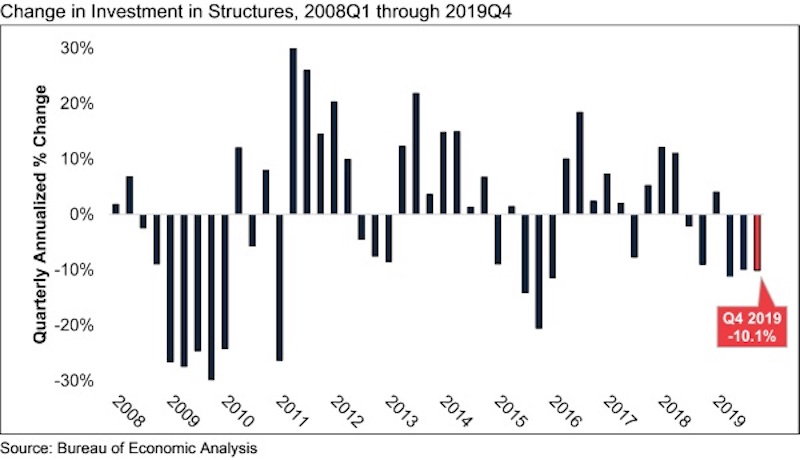
Related Stories
Senior Living Design | May 9, 2017
Designing for a future of limited mobility
There is an accessibility challenge facing the U.S. An estimated 1 in 5 people will be aged 65 or older by 2040.
Industry Research | May 4, 2017
How your AEC firm can go from the shortlist to winning new business
Here are four key lessons to help you close more business.
Engineers | May 3, 2017
At first buoyed by Trump election, U.S. engineers now less optimistic about markets, new survey shows
The first quarter 2017 (Q1/17) of ACEC’s Engineering Business Index (EBI) dipped slightly (0.5 points) to 66.0.
Market Data | May 2, 2017
Nonresidential Spending loses steam after strong start to year
Spending in the segment totaled $708.6 billion on a seasonally adjusted, annualized basis.
Market Data | May 1, 2017
Nonresidential Fixed Investment surges despite sluggish economic in first quarter
Real gross domestic product (GDP) expanded 0.7 percent on a seasonally adjusted annualized rate during the first three months of the year.
Industry Research | Apr 28, 2017
A/E Industry lacks planning, but still spending large on hiring
The average 200-person A/E Firm is spending $200,000 on hiring, and not budgeting at all.
Market Data | Apr 19, 2017
Architecture Billings Index continues to strengthen
Balanced growth results in billings gains in all regions.
Market Data | Apr 13, 2017
2016’s top 10 states for commercial development
Three new states creep into the top 10 while first and second place remain unchanged.
Market Data | Apr 6, 2017
Architecture marketing: 5 tools to measure success
We’ve identified five architecture marketing tools that will help your firm evaluate if it’s on the track to more leads, higher growth, and broader brand visibility.
Market Data | Apr 3, 2017
Public nonresidential construction spending rebounds; overall spending unchanged in February
The segment totaled $701.9 billion on a seasonally adjusted annualized rate for the month, marking the seventh consecutive month in which nonresidential spending sat above the $700 billion threshold.


